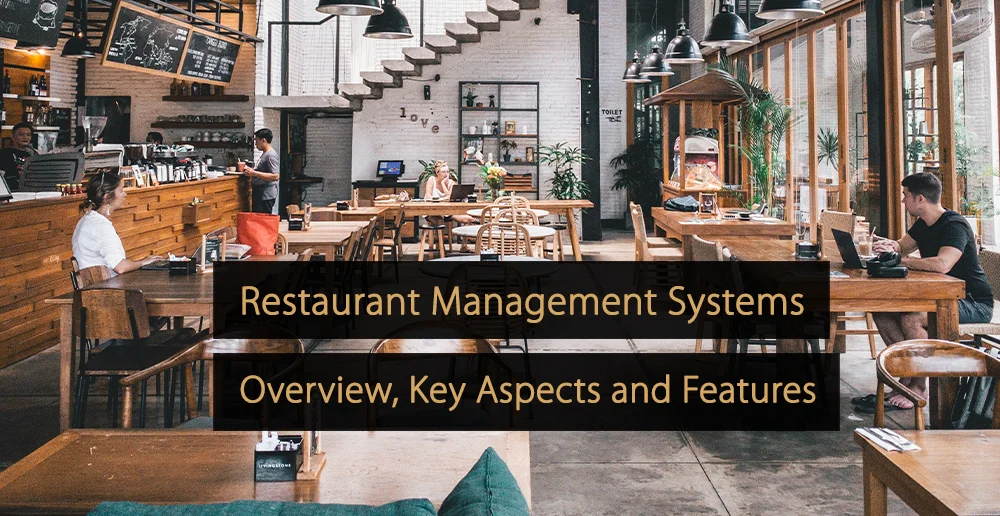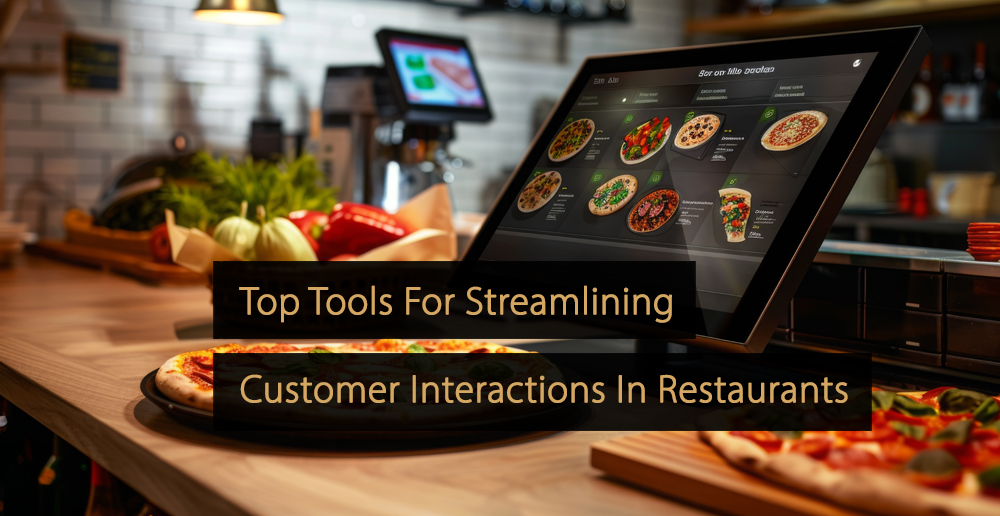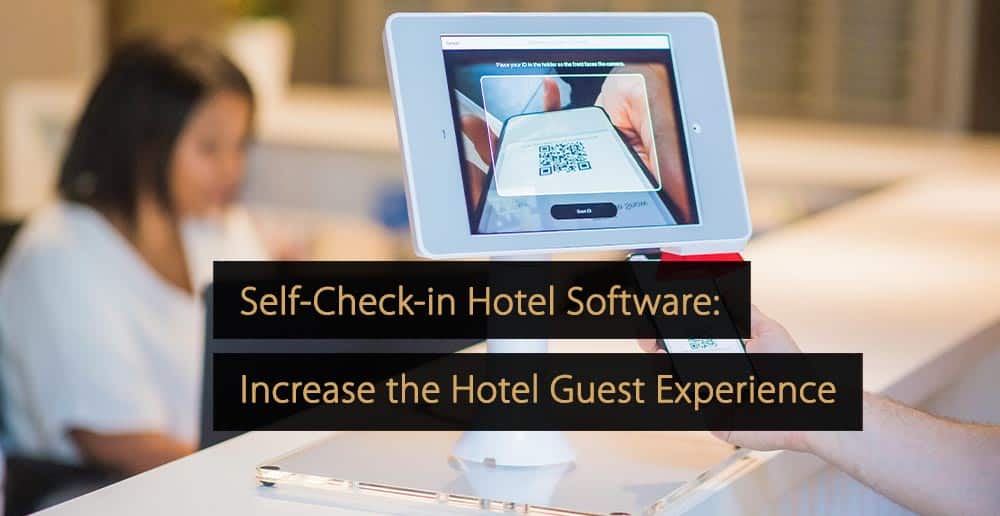Restaurant management systems are a type of restaurant management software intended to assist with the tasks associated with the day-to-day management of a restaurant or similar business. In this article, you can learn about what the technology does, the main features, and the different components that make up a sound system of this kind.
Table of Contents:
- What Is Restaurant Management?
- What Is a Restaurant Management System?
- What Are the Benefits of Restaurant Management Systems?
- What Are the Key Features of a Good Restaurant Management System?
- 5 Most Important Types of a Restaurant Management System
- Restaurant Management Systems and the Restaurant Industry
- An Overview of Other Restaurant Management Systems
- Restaurant Management Systems: Understanding Restaurant POS Systems
- Restaurant Management Systems and Other Restaurant Technology Trends
- Key Features of an Online Food Ordering System
- Finding the Best Restaurant Ordering System
What Is Restaurant Management?
Restaurant management refers to managing day-to-day operations within a restaurant or similar setting. It encompasses various tasks and responsibilities, from overseeing company finances and facilitating business growth to overseeing marketing, managing the workforce, and delivering a great customer experience.
Essentially, a restaurant manager’s job is to balance the various needs of the business, provide leadership, set strategic objectives, use restaurant management software, and ensure all departments are functioning as they should. Ultimately, restaurant management is concerned with guiding a restaurant to long-term success.
What Is a Restaurant Management System?
A restaurant management system is a type of software that has been specifically designed for use within the restaurant industry. Also known as restaurant management software, such solutions are intended to assist leaders and others in carrying out the most critical managerial tasks.
A system of this type may be a comprehensive all-in-one solution, including elements of a point-of-sale system, such as payment processing, with more complex back-end features, such as workforce management, inventory management, and a booking or reservations system. However, some restaurant management systems focus on specific areas.
Restaurant Management systems are only growing in importance in the industry. According to the Restaurant Management Software Market Research Report by Maximize Market Research, the global restaurant management software market is estimated to reach a value of $12.03 billion in 2029.
What Are the Benefits of Restaurant Management Systems?
Many of the benefits of using restaurant management systems are related to automation and speeding up processes to improve the customer experience. Modern customers expect fast, frictionless service, and restaurant management software plays a key role in meeting these expectations.
Additionally, such solutions can serve as a critical piece of restaurant technology because they bring many different processes together in one location. A comprehensive restaurant management system will allow for payment processing, financial management, sales tracking, performance monitoring, personnel management, and more.
Table: Benefits of Restaurant Management Systems
What Are the Key Features of a Good Restaurant Management System?
The best restaurant management systems will share similar traits and features, including the following:
Cloud-Based
Cloud-based restaurant management software provides several benefits that more conventional on-premises deployment cannot. For instance, remote access to software becomes much more manageable, data is continually updated and backed up, and start-up costs are minimized in exchange for predictable subscription fees.
Using software that relies on cloud infrastructure requires continuous internet access, but the benefits also extend to greater security and compatibility with similar applications. According to the POS Software Trends Report by Hospitality Technology, 71% of survey respondents find cloud-based technology to be one of their key features.
Reporting & Analytics
Another major part of restaurant management systems is reporting and analytics features. In most cases, an easily accessible dashboard will provide a basic overview of the primary information that those involved in restaurant management may need to know daily. At the same time, more in-depth reports can also be generated.
This allows managers, owners, and other leaders to monitor restaurant performance over time closely. Meanwhile, analytics tools can help restaurants assess, analyze, and understand the vast amounts of data they collect.
Additional Integrations
Modern businesses tend to utilize a variety of different applications, and the data needs to be able to be passed between them as seamlessly as possible. This requires integration options, which is why such functionality is essential for the best restaurant management software solutions.
Service providers offer some cloud-based solutions that can customize the restaurant management system for each business based on the integrations they need. However, where this is impossible, a basic level of integration with CRM, revenue management, and restaurant POS systems must be offered.
Technical Support
Finally, your chosen restaurant management system must include technical support functions. After all, when things go wrong with your software or you encounter system failures, it can disrupt your entire business, meaning solutions need to be found as quickly as possible.
Technical support features can come in many forms, from access to live chat support or a ticketing system for accessing professional assistance to built-in help, troubleshooting, and tutorial sections within the software itself.
5 Most Important Types of a Restaurant Management System
There are several different categories of restaurant management systems or components that combine to make up the entire system, and you can learn about five of the most significant of these below:
POS System
As the name indicates, your restaurant POS system, or point-of-sale system, is where you carry out many sales tasks. Here, you can process card, cash, or mobile wallet payments, manage billing, print receipts, and have this information automatically feed into more comprehensive company data.
Modern, cloud-based POS systems are compatible with many devices, including mobile phones, iPads, and other tablet devices. This has transformed point-of-sale processes for many restaurants because payments can be processed using portable devices that can also be used for various other tasks.
Restaurant Management Software
Restaurant management software consolidates basic management-related tasks in running a restaurant. For instance, it can bring together information from all online booking channels, allowing you to see all bookings and keep this data up-to-date to avoid double bookings.
The software can provide automation tools so guests are automatically sent confirmation emails or an email or SMS reminding them to attend on the day of their booking. Reports can be generated, highlighting key performance indicators, while a dashboard provides a general overview of your current restaurant status.
Order Management Software
The order management software component of restaurant management systems is concerned with managing orders from customers and suppliers. As customers make orders, the information can be collected by your order management software and can automatically update current stock levels.
Generally, there will be options to view past customer orders or access current orders so guests receive the right food. As stock levels decrease, orders can be placed to suppliers for more of a particular product or ingredient, and orders can be monitored over time, so you can see how much of a specific item you are purchasing.
Video: Order Management Explained
Employee Management Software
An employee management component within all sound restaurant management systems allows you to handle tasks associated with managing your workforce. This could include options that will assist you with the creation of a work schedule that balances your business needs with employee availability and contractual obligations.
Usually, options will be included to monitor attendance over time and view when staff is away on holidays or other authorized absences. Payroll can also be managed through this component, while there may also be some additional communication features, along with functions related to Human Resources (HR) and employee benefits.
CRM & Marketing Software
Customer relationship management (CRM) is vital for restaurants because customers may contact you to make special requests, ask dietary questions, or complain. CRM functionality within restaurant management systems allows all communication to be kept in a single place for easy access.
Meanwhile, marketing software can handle almost all elements of promoting your restaurant, especially online. Through such software, you can control pay-per-click advertising, your content marketing strategy, special offers, other promotions, marketing emails, and much more.
Restaurant Management Systems and the Restaurant Industry
The best restaurant management software must be versatile and customizable because the restaurant industry is so varied and complex. After all, it comprises many different types of restaurants, from fast food and casual restaurants to fine dining experiences, and within each category, there can also be significant variation.
You can learn more about the entire restaurant industry, the different types of restaurants, and a lot more in our article, “Restaurant Industry: The Complete Guide”.
An Overview of Other Restaurant Management Systems
Aside from using restaurant management systems, most restaurants will also rely on other solutions, from finance and accounting software to table reservation software, customer service chatbots, and delivery management software. Choosing the right combination of tools is crucial to achieving the best outcomes.
Information about these software types and many more, along with an explanation of the benefits, can be found in our article, “Restaurant Management Software: A Complete Overview”.
Restaurant Management Systems: Understanding Restaurant POS Systems
Restaurant POS systems offer customers the means to accept payments, making them one of the most important examples of restaurant management software. However, there can be much more to POS systems besides the simple processing of payments, as these systems also offer back-end options and integration with other tools.
To fully explore the topic of restaurant POS systems and to gain a greater understanding of the main trends influencing this software, read “Restaurant POS Systems: The Latest and Future Trends”.
Restaurant Management Systems and Other Restaurant Technology Trends
The broader restaurant industry has many technology trends beyond good restaurant management software. Examples of these trends include self-order kiosks, handheld point-of-sale devices, digital display screens within kitchens, and restaurant chatbots.
Understanding these technology trends and the reasons for their emergence helps you get the most from your restaurant. Read the “Latest Restaurant Technology Trends You Need to Know About” article.
Key Features of an Online Food Ordering System
The restaurant management systems featured will help you to deliver for your customers, but an online food ordering system can be especially important for restaurants that wish to provide takeaway and food delivery services. Nevertheless, it is important to identify the ideal system for your use cases and requirements.
In the “Online Food Ordering System: Must-Have Features When Choosing One” article, you can read a breakdown of the most significant features to look out for when selecting your restaurant’s online ordering system.
Finding the Best Restaurant Ordering System
Few restaurant management systems are quite as important as your restaurant ordering system. This system helps to dictate the customer experience and how effective your staff is at managing orders as they come in. A great system can also integrate with your financial and inventory data and play a significant marketing role too.
In the “Restaurant Ordering System: Tips for Restaurateurs When Choosing One” article, you will find valuable advice on assessing different ordering systems on the market and selecting the best one for your needs.
Restaurant Management Systems FAQs
Restaurant management software is crucial in helping those in the industry carry out essential tasks and activities while optimizing financial results and customer experience.
Did You Like This Article About Restaurant Management Systems?
You might also be interested in the following articles:
- POS Software for Hospitality: A Deep-Dive into Reporting Features
- Online Food Ordering System: Must-Have Features When Choosing One
- Restaurant Chatbots: What Are They, Their Use and Benefits
- How to use Artificial Intelligence in the Hospitality Industry
- POS Apps: How to Choose the Right One?
More Tips to Grow Your Business
Revfine.com is the leading knowledge platform for the hospitality and travel industry. Professionals use our insights, strategies, and actionable tips to get inspired, optimize revenue, innovate processes, and improve customer experience.Explore expert advice on management, marketing, revenue management, operations, software, and technology in our dedicated Hotel, Hospitality, and Travel & Tourism categories.
This article is written by:
Hi, I am Martijn Barten, founder of Revfine.com. With 20 years of experience in the hospitality industry, I specialize in optimizing revenue by combining revenue management with marketing strategies. I have successfully developed, implemented, and managed revenue management and marketing strategies for individual properties and multi-property portfolios.











I am opening a restaurant. The information about restaurant management systems helps me to understand which software I need for my restaurant. Very helpful, Thank you.
Hello, Revfine team! I just finished reading your article on restaurant management systems, and I wanted to reach out and express my gratitude for the valuable insights you provided. As someone involved in the restaurant industry, your article was an excellent resource for understanding the importance and benefits of implementing a restaurant management system. Thank you for sharing your expertise!
Your article comprehensively overviews different restaurant management systems and their key functionalities. I appreciated your highlighting the various aspects these systems can streamline, such as table reservations, inventory management, staff scheduling, and point of sale (POS) integration. Your breakdown of the features and benefits of each system helped me evaluate which solution would be the most suitable for my restaurant’s specific needs.
Moreover, I found your emphasis on the advantages of cloud-based systems and mobile accessibility particularly insightful. The way you highlighted these systems’ real-time reporting and data analysis capabilities showcased how they can empower restaurant owners and managers to make informed decisions and improve operational efficiency.
Overall, your article was well-researched, well-written, and a valuable resource for anyone seeking to enhance their operations in the restaurant industry. Thanks to your insights, I now better understand the available restaurant management systems and can make an informed decision for my own establishment. Keep up the excellent work, and I’ll be sure to refer back to your website for more valuable resources and industry insights in the future!